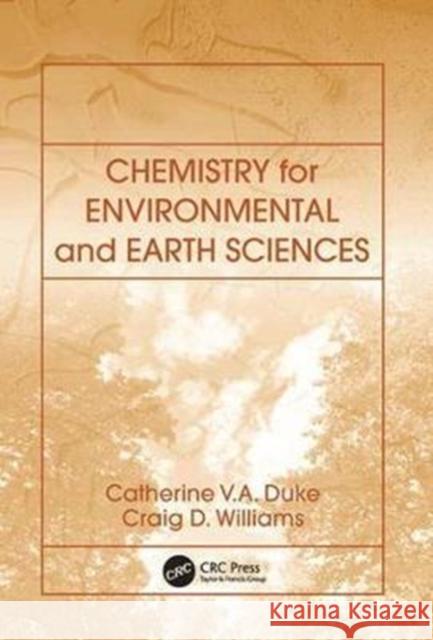Chemistry for Environmental and Earth Sciences » książka
Chemistry for Environmental and Earth Sciences
ISBN-13: 9781138424357 / Twarda / 2017
Chemistry for Environmental and Earth Sciences
ISBN-13: 9781138424357 / Twarda / 2017
(netto: 932,90 VAT: 5%)
Najniższa cena z 30 dni: 906,73
ok. 16-18 dni roboczych.
Darmowa dostawa!
Tackling environmental issues such as global warming, ozone depletion, acid rain, water pollution, and soil contamination requires an understanding of the underlying science and chemistry of these processes in real-world systems and situations. Chemistry for Environmental and Earth Sciences provides a student-friendly introduction to the basic chemistry used for the mitigation, remediation, and elimination of pollutants. Written and organized in a style that is accessible to science as well as non-science majors, this textbook divides its content into four intuitive chapters: Fire, Earth, Water, and Air. The first chapter explains classical concepts in chemistry that occur in nature such as atomic and molecular structures, chemical bonding and reactions, states of matter, phase transitions, and radioactivity. Subsequent chapters focus on the chemistry relating to the geosphere, hydrosphere, and atmosphere including the chemical aspects of soil, water, and air pollution, respectively. Chemistry for Environmental and Earth Sciences uses worked examples and case studies drawn from current applications along with clear diagrams and concise explanations to illustrate the relevance of chemistry to geosciences. In-text and end-of-chapter questions with complete solutions also help students gain confidence in applying concepts from this book towards solving current, real-world problems.
Tackling environmental issues such as global warming, ozone depletion, acid rain, water pollution, and soil contamination requires an understanding of the underlying science and chemistry of these processes in real-world systems and situations. Chemistry for Environmental and Earth Sciences provides a student-friendly introduction to the basic chemistry used for the mitigation, remediation, and elimination of pollutants. Written and organized in a style that is accessible to science as well as non-science majors, this textbook divides its content into four intuitive chapters: Fire, Earth, Water, and Air. The first chapter explains classical concepts in chemistry that occur in nature such as atomic and molecular structures, chemical bonding and reactions, states of matter, phase transitions, and radioactivity. Subsequent chapters focus on the chemistry relating to the geosphere, hydrosphere, and atmosphere including the chemical aspects of soil, water, and air pollution, respectively. Chemistry for Environmental and Earth Sciences uses worked examples and case studies drawn from current applications along with clear diagrams and concise explanations to illustrate the relevance of chemistry to geosciences. In-text and end-of-chapter questions with complete solutions also help students gain confidence in applying concepts from this book towards solving current, real-world problems.











